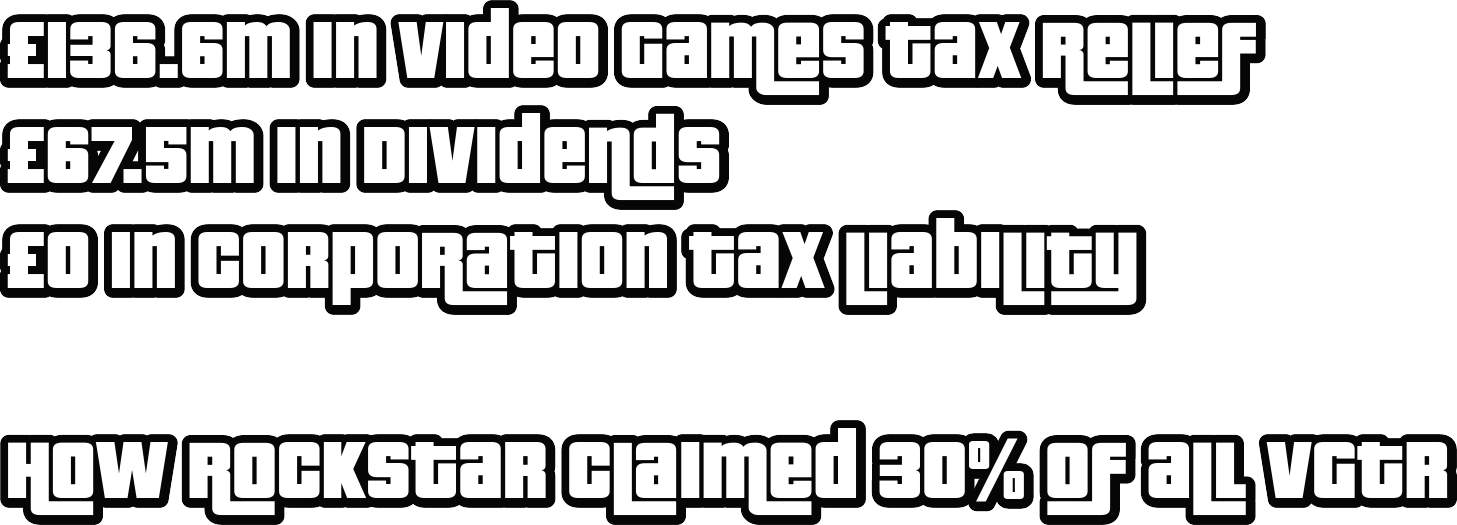
by Alex Dunnagan | May 9, 2022
Rockstar Games has revealed that they claimed £68.4m in Video Games Tax Relief (VGTR) in 2020-2021, equivalent to 38% of the entire amount of VGTR paid out that year. The amount Rockstar are claiming is rising every year, taking the total the US-owned company has...

by Alex Dunnagan | Jan 19, 2022
Rockstar Games UK Limited (previously Rockstar North) has finally published it’s 2020 accounts, more than one year late. In fact, the publication of Rockstar’s accounts are so late that the company’s 2021 accounts are already overdue. The recently filed 2020...

by Alex Dunnagan | Oct 14, 2021
Key facts and figures: £180m paid out in VGTR last year 48% increase in VGTR on the previous year 55 claims for over £500,000 represent 87% of the total value of payments Video Games Tax Relief (VGTR), a form of subsidy to the UK videogames industry, has seen a 48%...

by Alex Dunnagan | Nov 20, 2019
20th November 2019 Swedish goats, Japanese hedgehogs and Batman: the £324 million tax bung to the ‘culturally British’ gaming industry Video Games Tax Relief (VGTR) has cost the taxpayer £324 million since it was introduced. To access funding, developers are required...

by George Turner | Aug 4, 2019
How Activision Blizzard has moved billions of dollars of profit into tax havens 4th August 2019 Activision Blizzard, publisher of hit games Call of Duty, World of Warcraft and Candy Crush moved €5bn to companies in Bermuda and Barbados between 2013-2017, documents...






